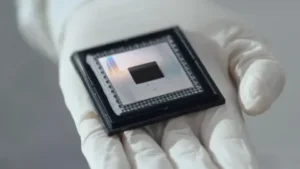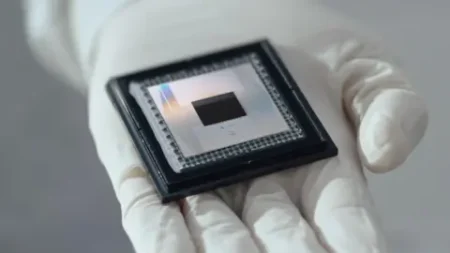In recent times, the emergence of what is termed “fast tech,” which includes inexpensive electronic devices often discarded or forgotten in drawers, has raised significant concerns among environmental advocates. A notable warning has been issued by the not-for-profit organization Material Focus, urging the public to pay closer attention to the escalating demand for such gadgets. This surge in consumer interest has led to an alarming trend, akin to the rapid rise of fast fashion, potentially wreaking similar environmental havoc.
Material Focus pointed out an acute inflation in sales linked to the unprecedented heatwave of 2025 that spurred the purchase of battery-operated mini-fans, with over seven million reportedly acquired within that year alone. Beyond these fans, consumer spending on various fast tech items has swelled dramatically, quadrupling to over £11.6 billion since 2023. The organization’s calculations reflected a bustling market for other quirky gadgets, such as glowing toilet seats and mini karaoke machines, with corresponding expenditures nearing £8 million. These figures paint a vivid picture of a consumer culture driven by a desire for novelty and convenience, without consideration of the potential consequences.
Professor Cathrine Jansson-Boyd, an academic involved in the study, cautioned that this trend could mirror the damaging impacts observed with fast fashion. The rise of cheap and disposable technology could similarly result in substantial environmental ramifications, leading to increased electronic waste and resource depletion. The advent of fast tech has made acquiring such devices easier; many cost less than a pound. However, this affordability obscures the valuable materials bound within these gadgets, presenting a dual challenge of consumption and waste.
Material Focus had previously highlighted concerning statistics, mentioning vast quantities of electronics languishing within the so-called “drawers of doom.” They posited that discarded gadgets could harbor more than 38,000 tonnes of copper alone, raising alarms about the waste of precious resources. Mining for materials pivotal to electronic products often endures significant environmental damage, critical at a time when nations strive towards low-carbon technologies. Consequently, there is a pressing need for consumers to adopt a more deliberative approach when it comes to their tech purchases. Scott Butler, the executive director of Material Focus, summed it up perfectly by stating, “We had fast food, then fast fashion, now fast tech,” emphasizing the urgent call for reflection before making purchases.
Moreover, the organization strongly advocates for recycling unwanted tech items, yet current data reveals that over half of fast tech products are either thrown away or remain unused. The need for a systematic change has been stressed by experts and organizations, indicating a continual cycle of consumerism that must be addressed.
Transitioning the focus, Joe Iles from the Ellen MacArthur Foundation, which champions a circular economy model, voiced optimism about rectifying the fast tech issue. He remarked that while rapid disposal behavior seems entrenched, it is harshly a recent phenomenon that has only gained speed over the past several decades. There are thriving markets for refurbished electronics that can significantly reduce waste, and policies like Right to Repair and Extended Producer Responsibility may promote better designs encouraging reusability.
Laura Burley of Greenpeace UK pointed out the toxicity of combining plastics with electronics, further complicating the recycling process. She asserted that many inexpensive tech items are neither durable nor intended for repair, aggravating the waste crisis as discarded products frequently find their way to poorer nations.
To mitigate these shared challenges, she proposed advancing towards a circular economy and encouraging producers to take responsibility for their products across the entirety of their life cycles. In her view, the solution requires consumers to rethink their habits, emphasizing that opting for simpler solutions—like manual fans or simply opening a window—can mitigate the needless purchases of fast tech that contribute to escalating environmental harm.
In conclusion, while fast tech offers temporary convenience and low costs, it burdens our ecosystem with its associated waste and resource management challenges. Active participation from consumers, along with systemic changes in production and recycling strategies, can advance toward a more sustainable future for technology consumption.











